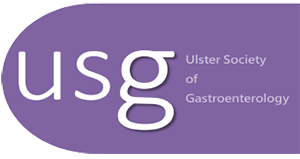Vitamin D Receptor As A Marker of Prognosis In Oesophageal Adenocarcinoma: A Prospective Cohort Study
Authors
S McCain, J Trainor, DT McManus, ÚC McMenamin, S McQuaid, V Bingham, JA James, M Salto-Tellez, RC Turkington, HG ColemanDepartments / Institutions
Centre for public health ICS-B Building, RVH Site, Grosvenor Road, Belfast, BT12 6BJ,Publication Date
Autumn 2018Introduction
Oesophageal cancer causes 400,000 deaths worldwide each year and ranks as the sixth most common cause of cancer mortality. 5-year survival rates range between 10% and 18%. In addition to early detection initiatives, there is a need to identify actionable, prognostic biomarkers to help predict patient outcome and also to identify novel therapeutic targets.
Aims
Vitamin D receptor (VDR) expression has been associated with survival in several cancer sites. This study aims to evaluate the association between VDR expression and prognosis in oesophageal adenocarcinoma patients.
Methods
Oesophageal adenocarcinoma specimens and clinical data were collected from 130 patients treated with neo-adjuvant chemotherapy prior to surgical resection at the Northern Ireland Cancer Centre between 2004 and 2012. Tissue microarrays were created and immunohistochemical staining for VDR was performed on triplicate tumour cores from each resection specimen. Cox proportional hazards models were applied to evaluate associations between VDR, according to tertiles of expression, and survival outcomes.
Results
During a median of 2.5 (maximum 9) years of follow-up, 75 patients died. In analysis adjusted for confounders, higher VDR expression was associated with an improved overall survival (HR 0.49 95% CI 0.25-0.96) and disease-specific survival (HR 0.50 95% CI 0.26-0.99), when comparing the highest with the lowest tertile of expression. These associations were strongest in sensitivity analysis restricted to junctional tumours
Conclusion
This study is the first to demonstrate that patients with higher VDR expression in oesophageal adenocarcinoma have a more favourable prognosis. Further work is needed to validate these findings, and to define the role of VDR in the aetiology, progression and management of oesophageal adenocarcinoma.
Latest News
Gastroenterology FK Meeting Provision and Challenges
Posted on: 2nd April 2021Latest Event
There are no up-coming events.E-Publications
Download our latest Documents


